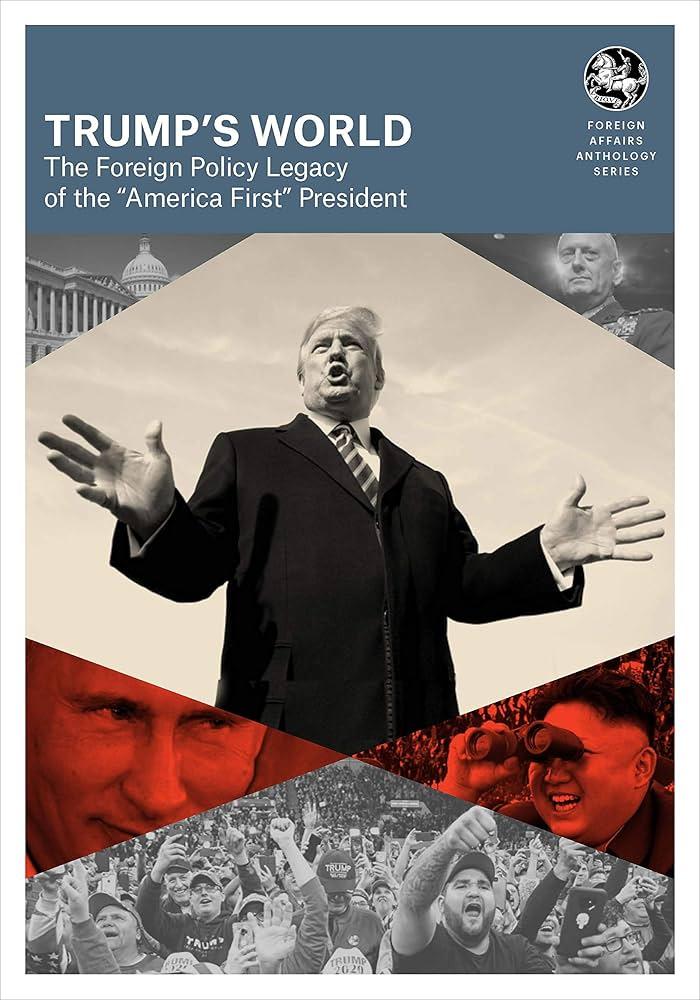Former President Donald Trump’s approach to foreign policy was marked by bold decisions and unconventional strategies that often sparked controversy at home and abroad. Yet among the myriad choices that defined his tenure, one stands out as his most consequential misstep on the world stage. In this analysis, we explore the foreign policy move that critics argue not only undermined U.S. interests globally but also reshaped international relations in ways that continue to reverberate today.
Trump’s Missteps in Diplomacy Undermining US Global Leadership
Throughout his tenure, the former president’s approach to international relations was marked by a departure from long-standing diplomatic protocols, leading to a notable erosion of U.S. influence worldwide. Key alliances were tested under the weight of erratic policy decisions, often characterized by unilateral actions and unpredictable statements. This volatility not only alienated traditional partners but also emboldened rival states to challenge the U.S. position on the global stage.
- Withdrawal from multinational agreements weakened trust in U.S. commitments
- Trade wars strained economically strategic relationships
- Inconsistent messaging undermined American credibility
At a crucial moment when global stability demanded strong leadership, missteps such as neglecting diplomatic norms and embracing transactional diplomacy diminished the United States’ ability to lead effectively. The ripple effects are evident in heightened geopolitical tensions and a competitive vacuum that adversaries have exploited with increased assertiveness.
| Diplomatic Action | Impact | Global Response |
|---|---|---|
| Paris Climate Accord Exit | Loss of environmental leadership | EU doubled down on sustainability |
| Iran Nuclear Deal Withdrawal | Increased nuclear tensions | China & EU sought diplomatic gap filling |
| Trade Tariffs on Allies | Economic friction | Retaliatory tariffs imposed |
The Consequences of Alienating Traditional Allies and Partners
Trump’s approach to key international relationships markedly strained alliances once considered pillars of U.S. foreign policy. By adopting an “America First” stance, the administration often sidelined diplomatic norms, resulting in diminished trust among long-standing partners in NATO, the European Union, and the Asia-Pacific region. This alienation jeopardized coordinated responses to global challenges such as counterterrorism, climate change, and economic stability.
Consequences of this shift were multifaceted:
- Reduced Intelligence Sharing: Allies became reticent to share sensitive information, weakening counterterrorism efforts.
- Trade Disputes: Tariffs imposed unilaterally sparked retaliatory measures, disrupting international supply chains.
- Military Coordination Challenges: Joint exercises and strategic planning suffered setbacks affecting global security dynamics.
| Allied Region | Impact | Result | |||||||||||||
|---|---|---|---|---|---|---|---|---|---|---|---|---|---|---|---|
| Europe (NATO) | Strained funding commitments | Unease over U.S. defense reliability | |||||||||||||
| Asia-Pacific (Japan, South Korea) | Unilateral trade actions | Increased regional tensions | |||||||||||||
| Strategies for Restoring Credibility and Rebuilding International Trust
Rebuilding trust on the global stage demands a multifaceted approach that prioritizes consistency and transparency. At the forefront, renewing key alliances through formal agreements and collaborative initiatives can signal a clear commitment to shared goals. Engaging in multilateral diplomacy, rather than unilateral actions, restores faith in America’s reliability as a partner. Additionally, establishing robust communication channels helps counter misinformation and fosters mutual understanding. Domestically, reinforcing the credibility of U.S. institutions is essential to projecting strength abroad. Investing in diplomatic training, reinstating adherence to international norms, and promoting human rights all contribute to a rehabilitated image. The table below outlines strategic pillars that could serve as the foundation for this diplomatic renaissance:
Final ThoughtsIn the wake of Trump’s tenure, his foreign policy decisions continue to provoke debate among experts and policymakers. While some initiatives reshaped diplomatic landscapes, critics argue that certain choices have had lasting negative impacts on the United States’ global standing. As the nation moves forward, assessing these foreign policy missteps will remain crucial for understanding the challenges and opportunities that lie ahead in American international relations. |




